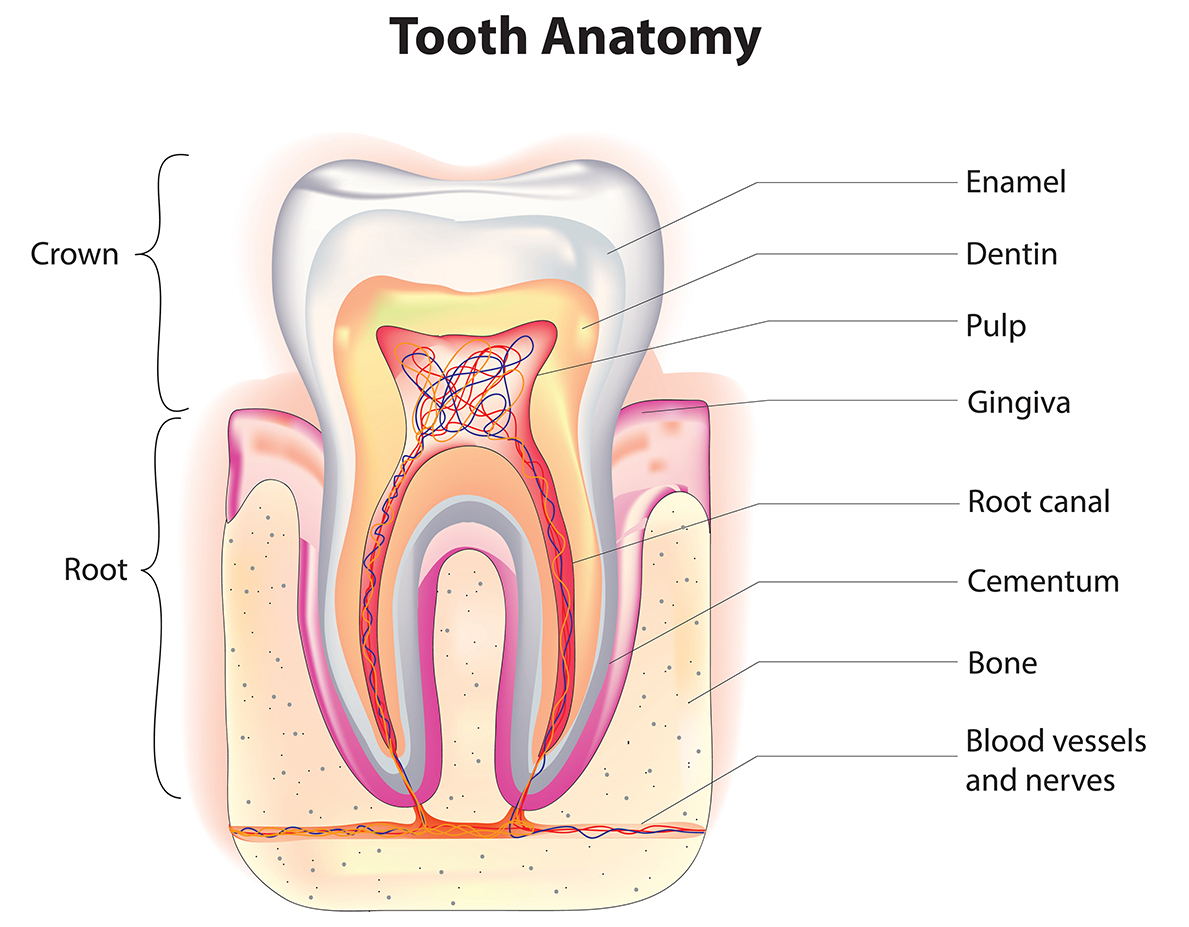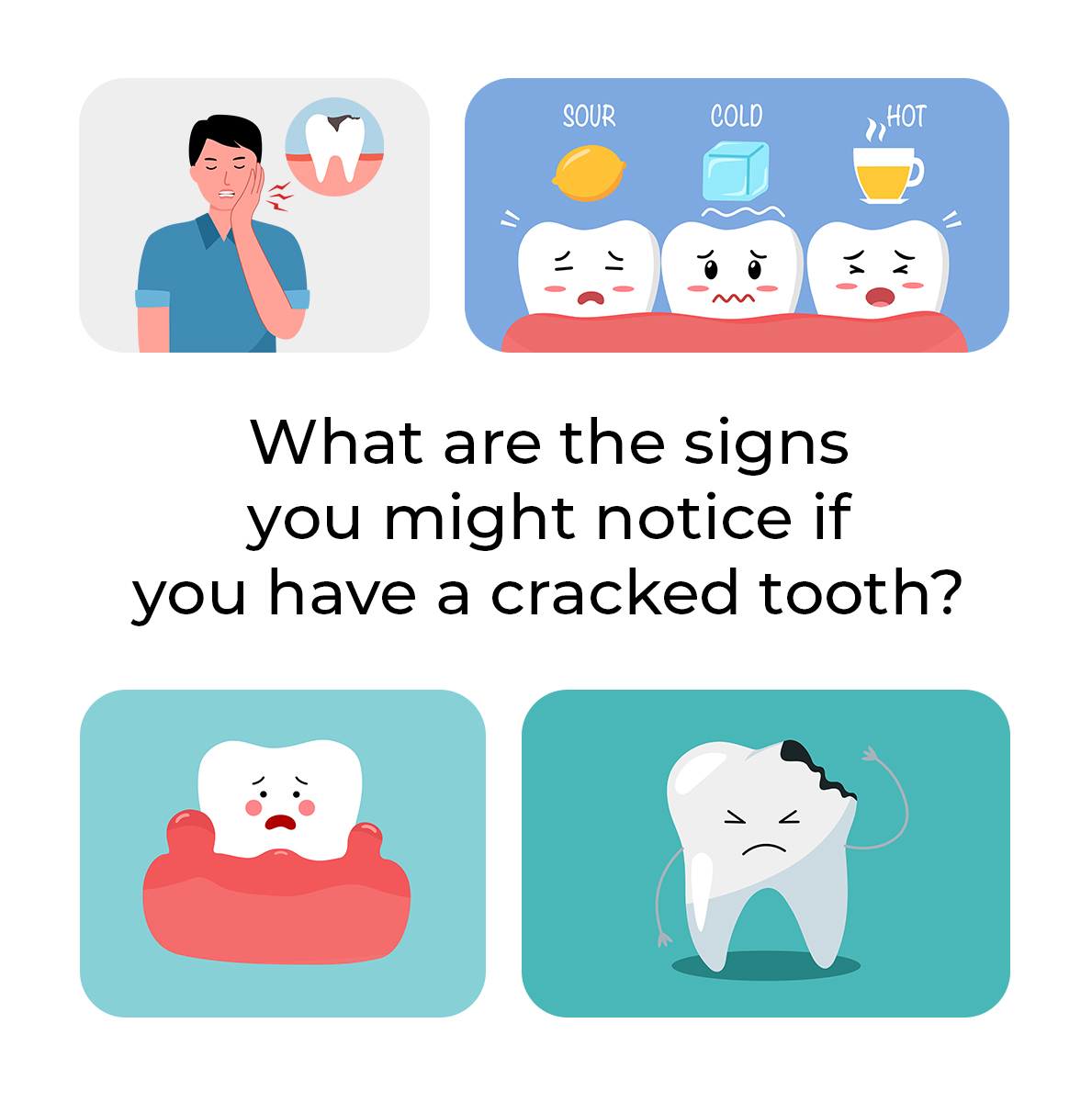 What is your tooth built of?
What is your tooth built of?
A tooth is made of three main layers:
- Enamel: The hard, outer layer that protects the tooth from damage.
- Dentin: The middle layer beneath the enamel, which supports the tooth and carries sensations like temperature.
- Pulp: The innermost part of the tooth contains nerves and blood vessels, responsible for nourishing the tooth and sensing pain.

What can cause a tooth to fracture?
- Trauma from falls, sports injuries, or accidents
- Biting on hard objects, like candy or using teeth to open bottles
- Tooth decay, which weakens the tooth’s structure
- Parafunctional habits, such as grinding or clenching teeth
- Enamel defects, like severe hypoplasia, that weaken enamel and increase the risk of fractures
What are the signs you might notice if you have a cracked tooth?
- If your tooth is cracked, you may experience the following signs:
- Sharp pain when biting down or chewing, which may come and go.
- Increased sensitivity to hot, cold, or sweet foods and drinks.
- Discomfort or pain that is difficult to pinpoint, making it hard to identify the exact tooth.
- Swelling of the gum around the affected tooth.
- A feeling of roughness on the surface of the tooth with your tongue.
